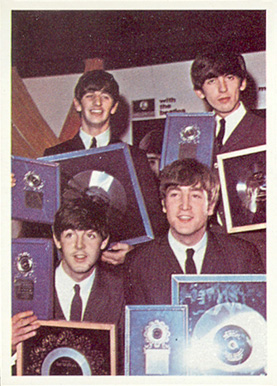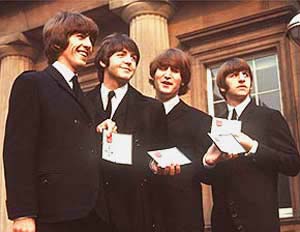Why the Beatles are remembered, and Justin Bieber won't be
By Jim Bennett, For the Deseret News
Published: Thursday, Oct. 3 2013

In this Nov. 18, 2012, file photo, Justin Bieber accepts the award for favorite album-pop/rock at the American Music Awards.(John Shearer, Invision/AP)
“My guest today is Justin Bieber,” announced Zach Galifianakis at the beginning of the latest installment of “Between Two Ferns,” his silly Internet talk show. He then turned to the teen idol and said, “It's really exciting to talk to you, especially in the middle of your public meltdown.”
There were a number of bizarre moments in the interview, but my favorite was when Galifianakis mocked Bieber for his comments after visiting the Anne Frank Museum and mused that the late Miss Frank might have been a “Belieber,” i.e. a Justin Bieber fan.
“Did you mean,” Galifianakis asked, “(that) if the Nazis had not taken her and she lived to be in her 80s, she would have liked your music — presumably due to loss of hearing?”
In Bieber’s defense, it’s hard to imagine anyone past the age of 30 appreciating any of the music being produced by any of Bieber’s contemporaries, and not just because old people don’t like pop music. These days, more and more old people are making pop music. Mick Jagger celebrated his 70th birthday this summer while on the road of his latest world tour with the other equally aged Rolling Stones, and former Beatle Paul McCartney, age 71, is releasing his latest solo album, appropriately titled “New,” on the 15th of this month. It’s remarkable that fully 46 years after releasing “When I’m Sixty-Four,” as well as seven years after actually turning 64, McCartney is showing no signs of slowing down.
But even more significantly, much of the music these icons have made over the decades isn’t showing any signs of slowing down, either. Songs like “Satisfaction” and “Yesterday” are still vital parts of the pop culture landscape, and they will likely remain so for generations to come. Will the same be said of Justin Bieber’s “Baby” or “Boyfriend?” as the decades roll on? Only time will tell. (But, really, no.)
The reality is that baby boomers who heard the Beatles the first time around still have “Eleanor Rigby” on their iTunes playlists. How many of today’s teenyboppers will even remember who Justin Bieber was in five decades? Or even five years?
It should be noted, however, that this isn’t just because Bieber’s music is lousy, although Bieber’s musical lousiness is certainly a big factor. Much of this has to do with the fragmented nature of the media landscape. When the Beatles played the Ed Sullivan Show and seared themselves into the public consciousness, there weren’t dozens of television channels and several million websites competing for eyeballs. For all the hubbub about Miley Cyrus’ performance at the Video Music Awards, it’s worth noting that it was only seen by about 10 million viewers. Compare that to the 73 million who tuned in to watch John, Paul, George and Ringo, none of whom twerked even once.
I’d like to say the Beatles did so much better in the ratings because they were so much better musically, which, you know, they were. But honesty requires an admission that the Beatles' numbers were so much larger than Miley’s because viewers had remarkably fewer choices.
More options means more opportunities, and that’s generally a good thing. But at the same time, we’ve lost something in that process, too. Pop culture used to be a collectively shared experience in a way that just isn’t possible anymore. Diversity often comes at the price of commonality, and, as a society, we pay a price to make that happen. It probably means no one will equal the Beatles. But it also means that Justin Bieber won’t linger longer than his expiration date.
So, all in all, a pretty good deal.
Jim Bennett is a recovering actor, theater producer and politico, and he writes about pop culture and politics at his blog, stallioncornell.com.



No hay comentarios:
Publicar un comentario